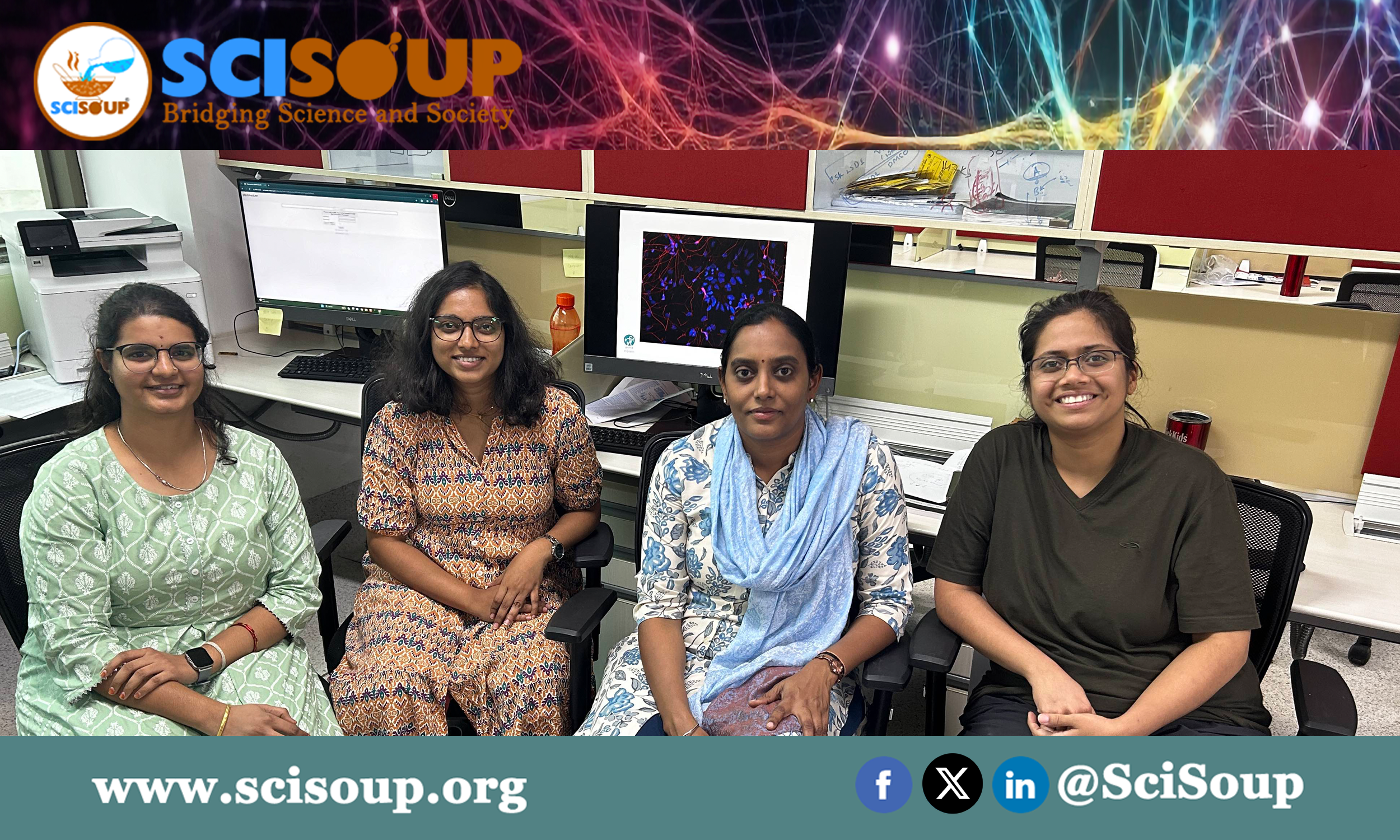
LSD1, a protein involved in modifying genetic material, plays a crucial role in human brain cell development.
FEB 09, 2024 | BY RATNESHWAR THAKUR
The human brain undergoes a fascinating journey during development. The process of making new brain cells, called neurogenesis, starts with special cells in the brain called neural stem cells. These stem cells first divide and make more of them-selves in a way that's like copying. After that, they switch to a different kind of division where they create specific types of cells called neurons, which are the building blocks of the brain. Studies suggest Chromatin regulation plays a critical role in this switch. Any disruptions in its development stages can result in behavioural issues, such as autism and intellectual disability.
To this end, a research team led by Dr. Bhavana Muralidharan at the Institute for Stem Cell Science and Regenerative Medicine (inStem), Bangalore, India, has been studying to decipher the fundamental role of LSD1, a gene conserved between mice and humans, in human neuronal development.
Now in a recent study Dr. Muralidharan’s team discovered that LSD1, a protein involved in modifying genetic material, plays a crucial role in human brain cell development. It acts like a conductor, influencing the functions of certain genes related to the nervous system and neurons in human brain cells. This control is important for determining the fate of these cells in the brain. The study, published in the journal 'Stem Cells,' employs a comprehensive approach, integrating experimental methods like ChIP-seq, RNA-seq, and Histone ChIP-seq data.
Research team observed that LSD1 reduces the activity of genes related to cell adhesion and the extracellular matrix in human neural stem cells. When comparing the methylation marks on histones in the promoter and regulatory regions of LSD1 target genes, researchers observed that these marks are more prevalent at enhancer sites unique to humans, while they are either absent or at low levels in the corresponding mouse locations.
Dr. Ishwariya Venkatesh, Senior Scientist & Project Leader at CSIR-Centre for Cellular and Molecular Biology (CCMB), who was not involved in this study, stated, "The study is important because it enhances our understanding of human neurogenesis by revealing the role of the chromatin modifier LSD1 in regulating neuronal development, and it identifies novel downstream effectors and pathways involved in this process."
Additionally, Dr. Pradeepa Madapaura (Group leader at Queen Mary University of London), in an email response, stated, “This elegant study by Bhavana Murilidharan’s group demonstrates the mechanism through which a chromatin-modifying protein called LSD1 regulates the composition of cell type in the developing brain by regulating the expression of genes. Particularly, this study uncovers the different function of human LSD1, which could contribute to human specific brain function”.
“This study will advance our understanding of human-specific brain development and provide potential opportunities to use epigenetic drugs to treat genetic disorders leading to severe neurodevelopmental disorders unique to humans,” Dr. Madapaura added.
Looking ahead, Dr. Muralidharan and her team envisions the next phase of the study, aiming to uncover precise disruptions in individuals with intellectual disabilities. This endeavor holds the promise of providing valuable insights for better diagnosis and more targeted treatments, ultimately contributing to a deeper understanding of the complexities of the human brain and its disorders.
Journal Reference:
LSD1 Regulates Neurogenesis in Human Neural Stem Cells Through the Repression of Human-Enriched Extracellular Matrix and Cell Adhesion Genes
Disclaimer:
To ensure accuracy and scientific relevance, this science blog has been run past the researchers - whose work is covered.

“The mouse brain has been invaluable in revealing fundamental features of mammalian neurogenesis, particularly regional patterning. However, our understanding of human-enriched genomic and developmental features crucial for advanced cognition remains limited.” She added. ”